Bucking the herd
The Berkeley appearance by superstar soprano Lise Davidsen inspired a mild dissent
A bedrock principle within the Quaker tradition is an effort to reach consensus, or a “sense of the meeting.” At Haverford College, for example — the Quaker institution in suburban Philadelphia where I grew up and where my father and stepmother spent their teaching careers — decisions by the faculty are made this way. On a practical level, though, Haverford’s process (which I believe is actually an idiosyncratic variant of Quaker practice) doesn’t necessarily give each individual faculty member veto power. A meeting participant can opt to “stand outside the consensus,” which is to say, I don’t agree with the decision being made here, but I’m content to let it go forward.
I bring up this piece of academic insiderism in connection with Lise Davidsen’s Feb. 4 recital for Cal Performances. The Norwegian soprano has emerged in recent years as one of the most extravagantly hailed voices of the operatic stage, an unearthly talent reminiscent of the mythic golden days of old. Her appearances at the Metropolitan Opera and elsewhere — though not, as yet, in San Francisco — have evidently left audiences agape. Her recital in Zellerbach Hall with the excellent pianist Malcolm Martineau, featuring music of Strauss, Schubert, Wagner, and others, marked her first visit to the Bay Area, and the mood was one of unbridled expectation followed by joy.
Well, OK. Far be it from me to interfere with anyone else’s delights. Davidsen is a fine singer, and last week’s program included its share of musical rewards. But in the face of the breathless paeans being heaped upon her, I’ll have to stand outside the consensus. Whatever it is that others are hearing in her artistry, both live and on record, has so far eluded me.
Davidsen produces a beautiful sound, that much is obvious. It’s big and rounded, and it boasts a kind of silvery weight that allows her to lean into a melodic phrase without impeding its mobility. She boasts a gleaming upper register, along with low notes that can surprise you with their presence. (Davidsen delivered the sepulchral opening notes of “Es gibt ein Reich,” the big dramatic showpiece from Strauss’ Ariadne auf Naxos, with astonishing power and finesse.)
Yet the artistic results never really quicken the pulse the way one would wish — or at any rate, they don’t quicken my pulse. There’s an expressive blankness in too many of Davidsen’s readings, a willingness to let majesty and grandeur — virtues she possesses in abundance — stand in for personal communication. She rarely makes an interesting or surprising or memorable interpretive choice. The music simply rolls forth in its impassive, implacable stateliness, and Davidsen gravitates toward music that calls for those qualities above all else.
But that’s a limited selection. In addition to Strauss and Wagner (excerpts from Tannhäuser, Tristan, and the Wesendonck-Lieder), Davidsen offered a few blandly ingratiating Grieg songs and a set of Schubert lieder that were merely pretty. She sounded oddly ill at ease in “Dido’s Lament” from Purcell’s Dido and Aeneas. “Tu che le vanità,” from Verdi’s Don Carlo, might have made more serious impression in the course of a full operatic performance, but on its own it sounded orphaned, with little connection to anything outside itself.
I have to conclude that Davidsen’s natural métier is probably the opera house. Recital as a genre may well require more conjuring of context than she can adeptly manage. I look forward to her San Francisco Opera debut, at which point I may be able to happily rejoin the musical consensus.
Elsewhere:
Lisa Hirsch, San Francisco Chronicle/SFCV: “…it’s not every dramatic soprano who can effortlessly scale her voice down from a thunderclap to a whisper, touching every dynamic level in between, all the while maintaining a superb legato and hitting every pitch with pinpoint accuracy.”
Lois Silverstein, Operawire: “Lise Davidsen’s voice is a wonder. It is a sound of the universe like nature unassailed.”
No problem!
Among Mahler’s symphonies, the Seventh has long been recognized as the problem child. More than any of its siblings, the piece is cloaked in dark emotional ambiguity, a stressful irony that can teeter on the verge of nihilism. There are parodies of Beethoven and Wagner that sometimes feel more mean-spirited than humorous, as well as a rhetorical elusiveness that leaves listeners uncertain where we stand: Is the piece for real, or some kind of elaborate practical joke? And what’s going on with the overall form? Why does Mahler need five movements, other than as some kind of symphonic manspreading?
Yet when conductor Paavo Järvi returned to Davies Symphony Hall on Thursday night to lead the San Francisco Symphony — his first guest appearance here in nearly a quarter of a century — the Seventh sounded anything but problematic.
That’s not a compliment. The most successful performances of Mahler’s Seventh, in my opinion, acknowledge and engage with the various issues surrounding the score. Järvi, by contrast, simply threw the lights on, as if to say, Nothing here a little discipline and common sense won’t fix. The rhythmic palette was fastidious and crisp throughout. The orchestral balances were sharp-edged, the instrumental colors extravagantly bright. Two of Mahler’s movements are designated as “Night Music,” and a third bears the marking “Like a shadow,” and yet I kept wanting to shield my eyes against the glare. Mystery, insinuation, doublespeak — all of these were in short supply. Järvi didn’t so much solve the score’s problems as deny they existed.
There are no problems at all in Shostakovich’s silly little Second Piano Concerto, which Kirill Gerstein played with the orchestra during the short first half. The composer wrote it as a graduation exercise for his son Maxim, and it’s less a piece of music than an entertaining artistic resume. “Look what my boy can do,” says Shostakovich. “He can play fast, he can play slow, he can deliver a moody little rhapsody and then pound the stuffings out of the keyboard a moment later.” Good for Maxim, and good for Gerstein.
Elsewhere:
Rebecca Wishnia, San Francisco Chronicle/SFCV: “The turmoil in the finale turns, perhaps too easily, into a triumphant processional. Is this real joy or Mahler throwing up his hands? This performance might have suggested the latter, but when it comes to the composer’s inner world, there are no easy answers.”
Michael Strickland, Civic Center: “Järvi's account…worked well for the hard-driving first movement, but was less effective in the three ‘night music’ movements in the middle, where the bright lights stayed on and there was no mystery or darkness.”
Stephen Smoliar, The Rehearsal Studio: “This is a score that could live up to the movie title Everything Everywhere All at Once, but I came away with the impression that Järvi knew exactly what every instrument was doing at every moment.”
Sexual politics
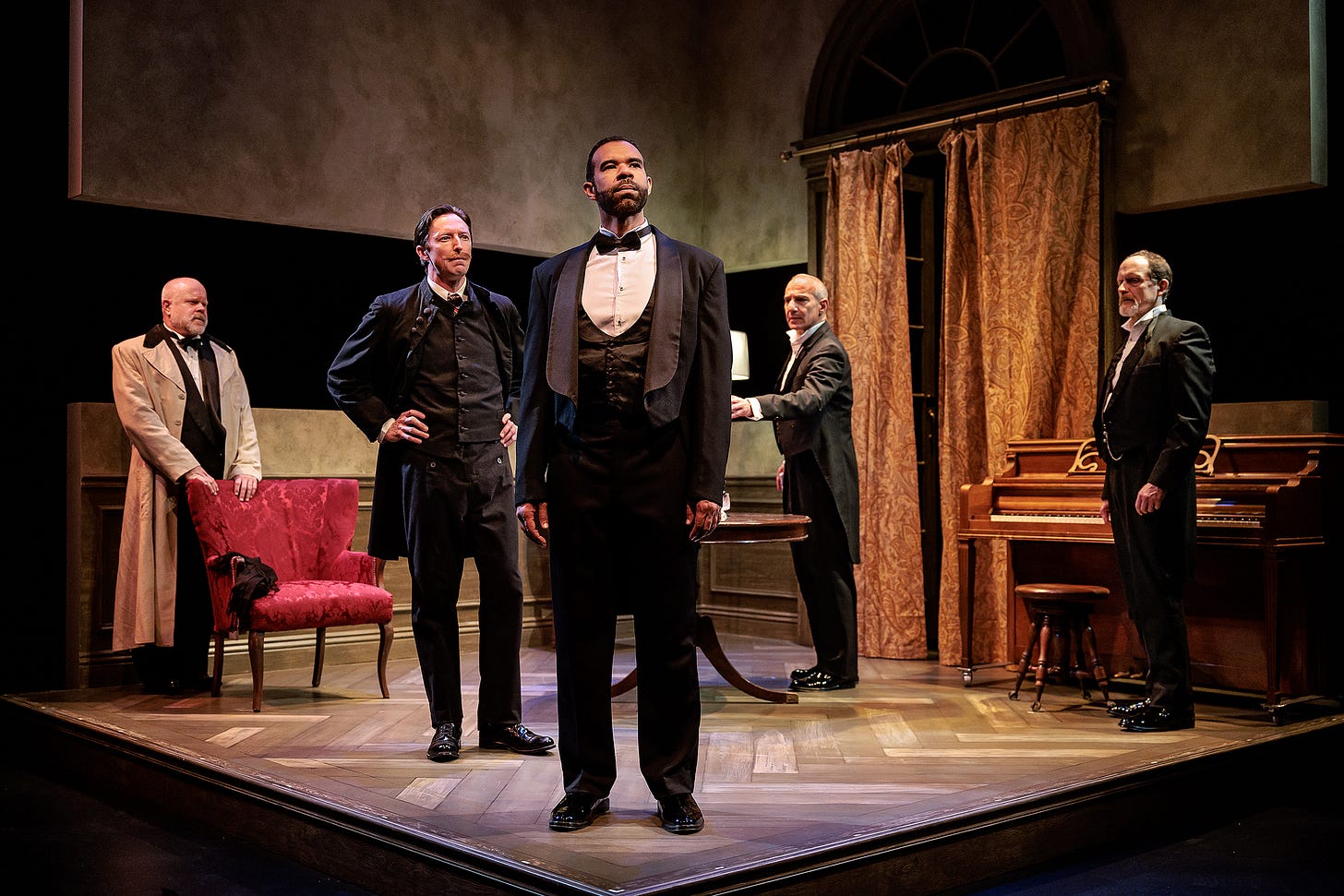
The English writer, actor, director, and theatrical impresario Harley Granville-Barker wrote his play Waste in 1906 and revised it completely 20 years later. “I doubt if one scrap of the old dialogue survives,” he wrote to a friend. “The story and the characters are here, that is all.”
In preparation for the production that opened Tuesday night at the Marin Theatre — a suave and skillfully rendered affair adapted and directed by Carey Perloff — I read the revised version of the play, blithely assuming that the latter had superseded the former. Not so. As soon as the performance began, at an unexpected stage in the action and featuring lines that were entirely new to me, I realized that Perloff had instead opted for the original Waste. And within a few minutes, I understood why.
Waste I is a talky, imperfectly focused discussion of some of the hot issues of the day, whereas Waste II lards the same basic framework with extra characters, extra side plots, and mountains of not-very-necessary banter and near-witticisms. If you happen to encounter the two works in reverse chronological order, as I did, the result is a happy illusion. How nice, you think, that Granville-Barker pruned away all that pointless overgrown foliage. How smart he was to get right to the heart of things in the first scene, instead of postponing it for 20 minutes. It’s only later that you realize no, he returned to the play after 20 years away and sat down to make it actively worse.
What is Waste about? It’s not easy to say. It touches on abortion, which got the play banned in England for decades, and also women’s rights, though only glancingly. There’s a lot about politics, some of it pleasingly abstract and philosophical but a lot of it dismayingly concrete — most notably in the long third act (out of four), which delves far too deeply into the nuts and bolts of forming a governmental cabinet. Granville-Barker has some thoughts about the differences between intellect and emotion, and about the importance of leaving a legacy behind (whether a child or a government program), and about much else besides, which he chases around the stage in a way that is both undisciplined and charming. There’s a flavor of reheated Shaw throughout, as if a newspaper essay — several of them, perhaps — had been set up on a theatrical stage.
Yet what makes Waste palatable — and what makes this well-cast production so hugely rewarding — is that all this cogitation is channeled through vividly three-dimensional characters. Henry Trebell, the self-identified “man of ideas” whose one brief and loveless tryst ultimately destroys his political career, is embodied by Lance Gardner (the company’s executive artistic director) as an improbably charismatic whirlwind of impatience, self-satisfaction, ambition, and rage. There are gorgeous contributions by Leontyne Mbele-Mbong as his sister and by Liz Sklar as the luckless Amy O’Connell, on whose unwanted pregnancy the play turns. Even the smaller roles — politicians, secretaries, friends, servants — are depicted with such painstaking specificity that their concerns become our own. And Perloff choreographs the whole affair without missing a step.
Elsewhere:
Steven Winn, San Francisco Chronicle: “Over the course of two-and-a-half tightly wrought hours, by turns eloquent, exhilarating, cynical, funny and dark, Waste, whose title cuts several ways, reveals how all the gears and pulleys work. Or don’t.”
Cryptic clue of the week
From Out of Left Field #254 by Henri Picciotto and me, sent to subscribers last Thursday:
Praise feature of index to librarian (5)
Last week’s clue:
Identify site of 1960s conflict: capital of Egypt (4)
Solution: NAME
Identify: definition
site of 1960s conflict: NAM
capital [letter] of Egypt: E
Coming up
San Francisco Symphony: It’s the rare piano soloist whose appearance with a symphony orchestra features one concerto during the first half of the program and another one after intermission. Yuja Wang is just such a rarity. Together with music director Esa-Pekka Salonen and the San Francisco Symphony, she’s slated to perform both Ravel’s Concerto for the Left Hand and the Piano Concerto No. 1 by the Finnish master Einojuhani Rautavaara, with the three sections of Debussy’s Images scattered throughout. Feb. 13-16, Davies Symphony Hall. www.sfsymphony.org.
Bluebeard’s Castle: Bartók’s dark, luminous one-act opera takes the stage at Opera San José in a new production staged by general director Shawna Lucey and conducted by music director Joseph Marcheso. Baritone Zachary Nelson sings the ominous title role, with soprano Maria Natale as his wife Judith, who learns an important lesson about looking into locked rooms. Feb. 15-March 2, California Theatre, San Jose. www.operasj.org.




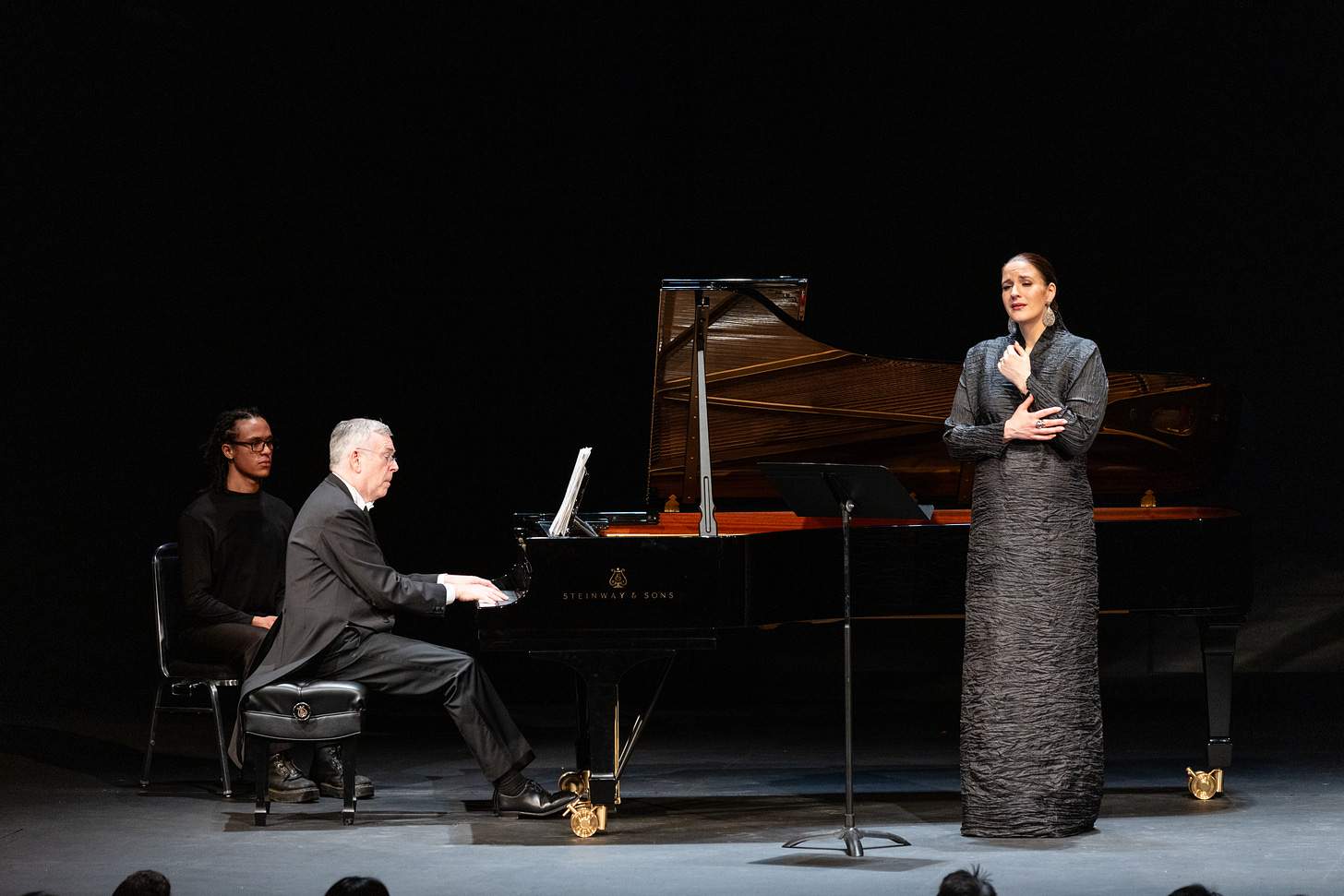
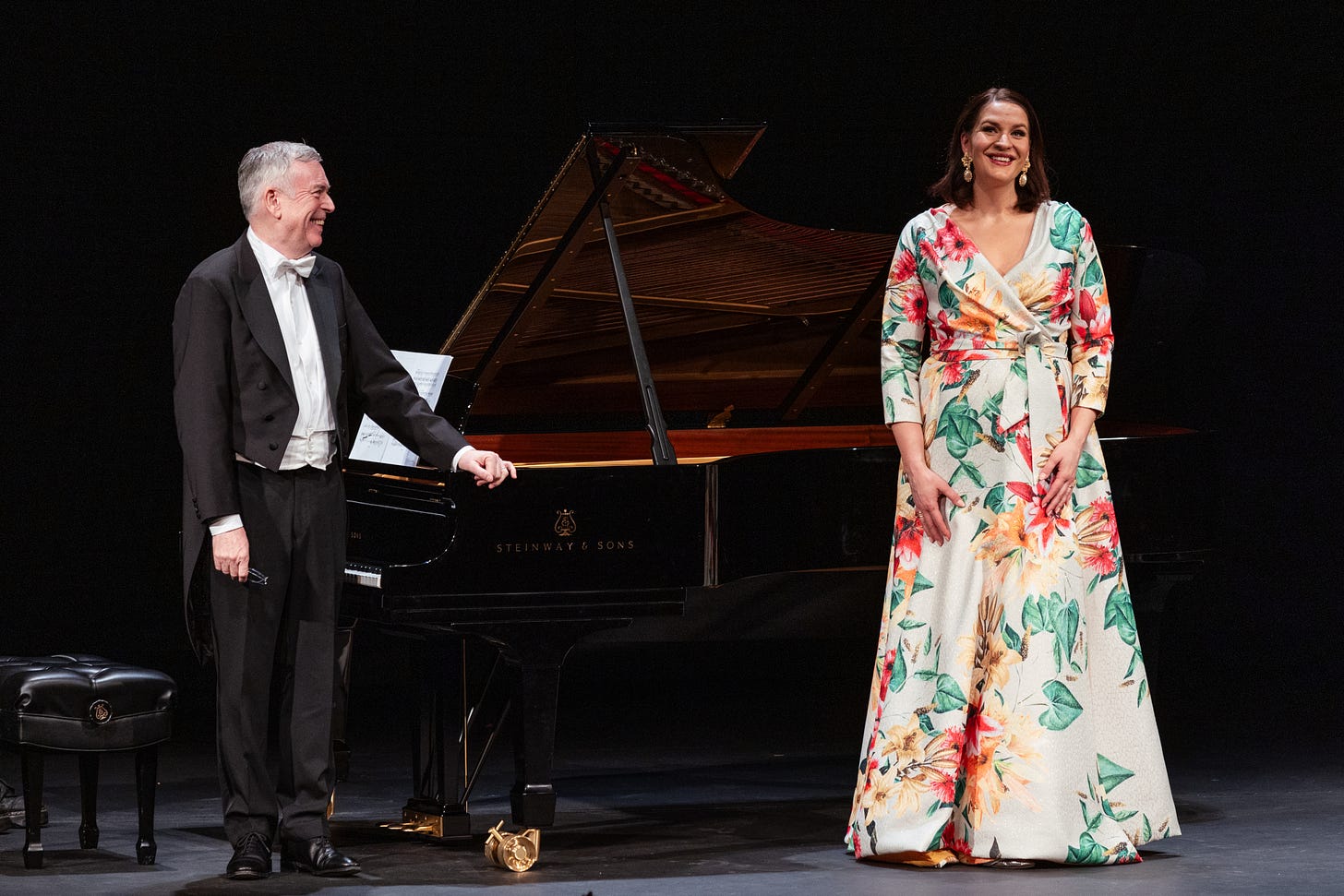
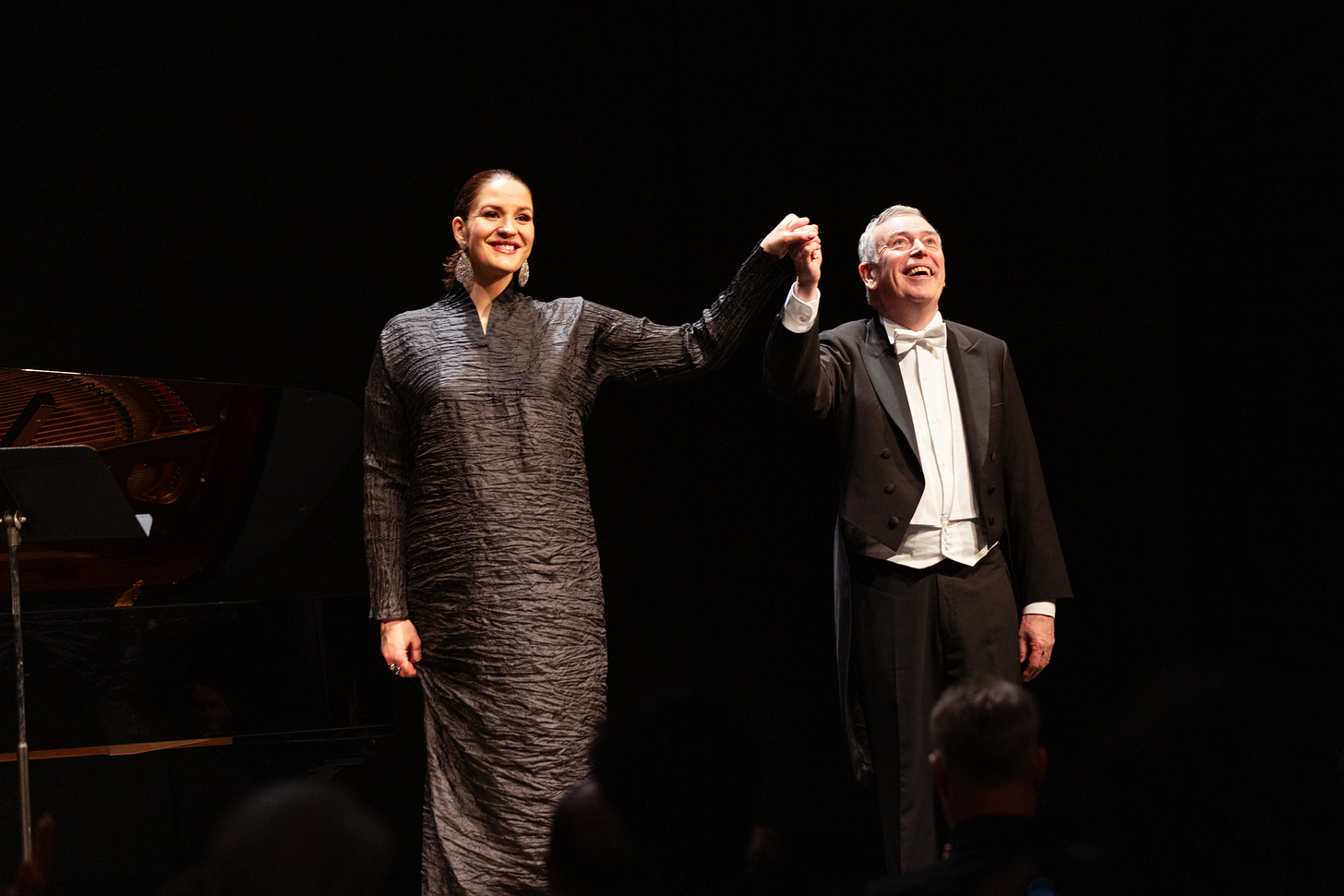
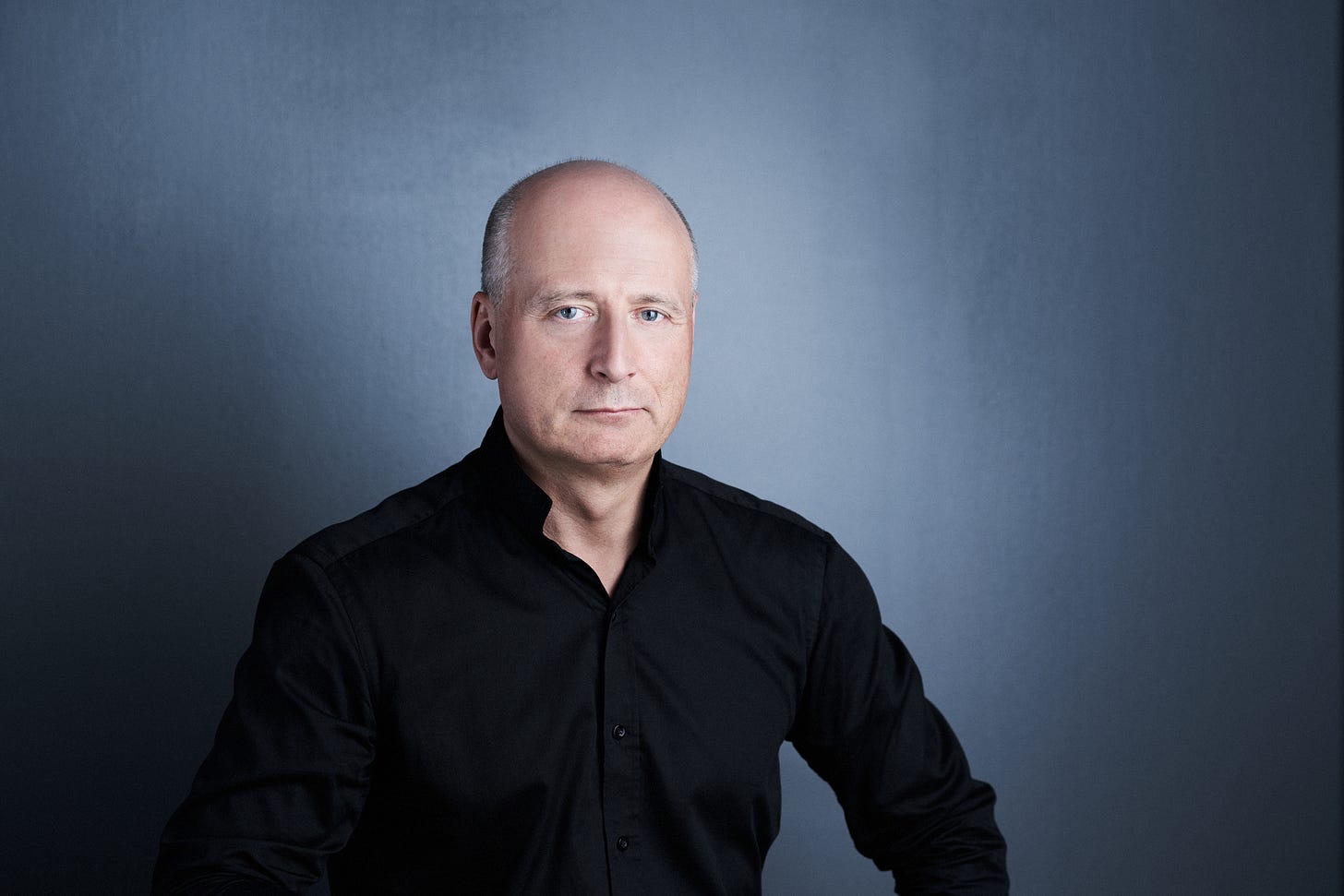

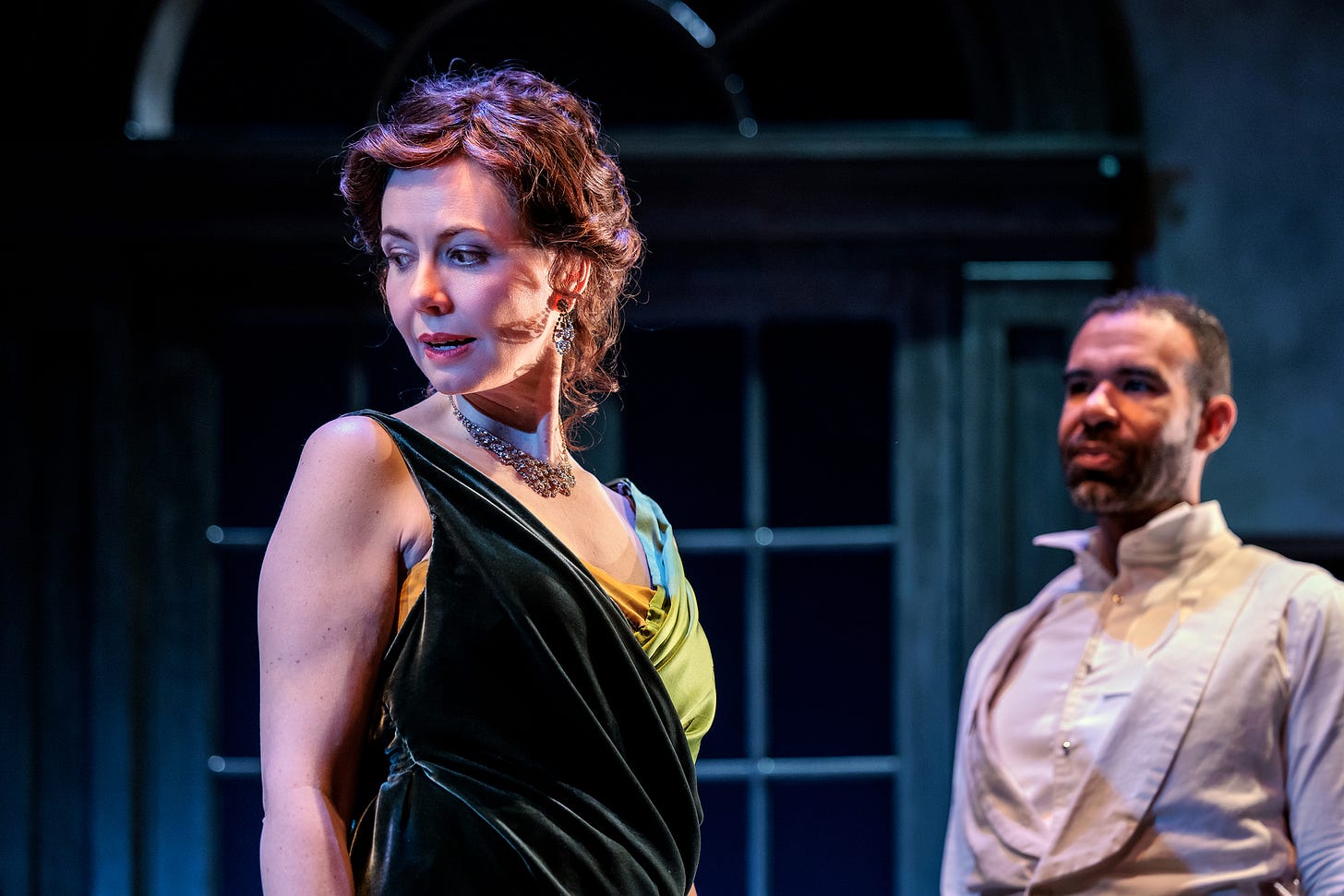
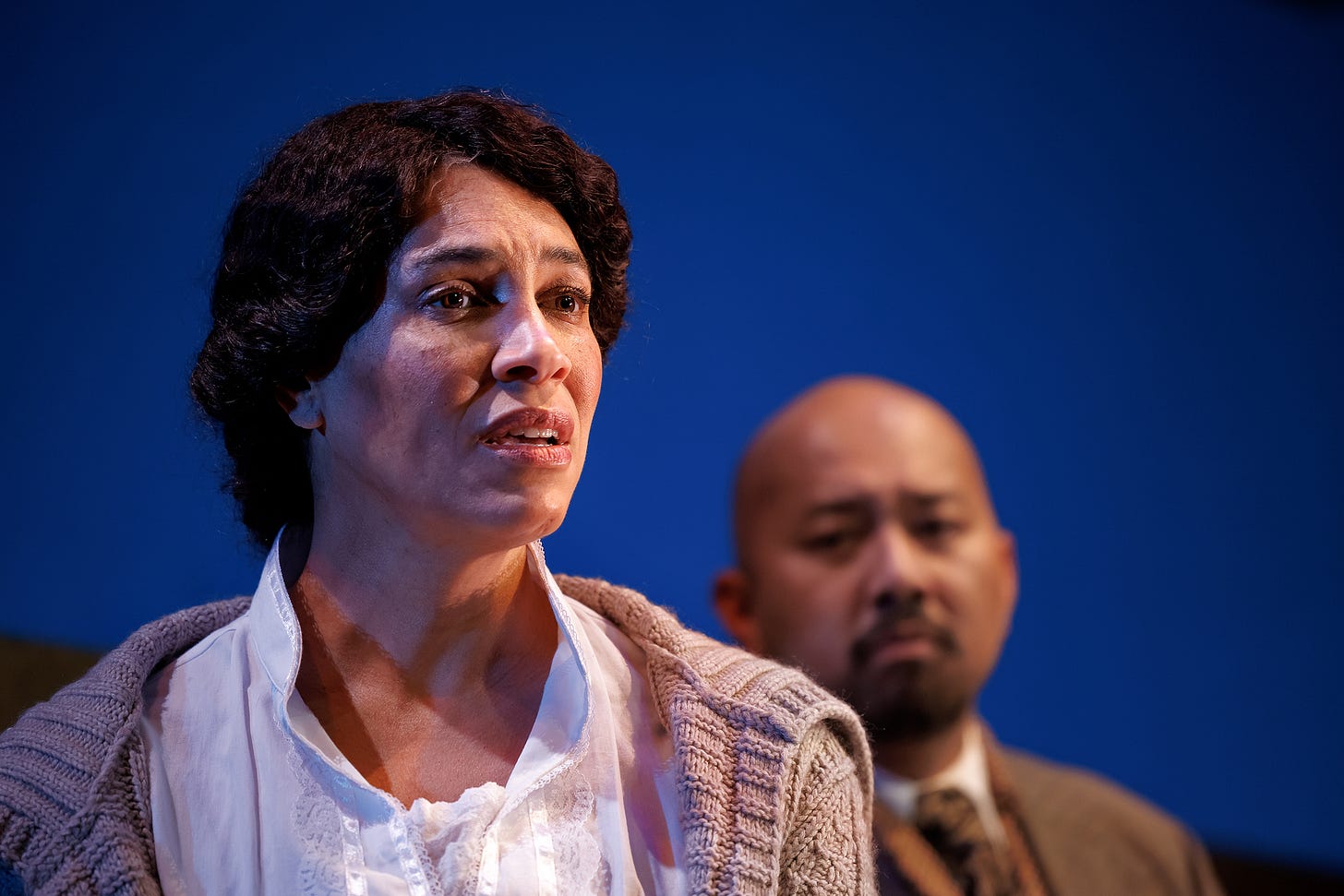
It’s easy to be swept up in the enthusiasm for a new singer — after all, we all so *want* to be carried away. Then, I found myself so disappointed in “Dido’s Lament” — an utterly ravishing piece in the poetry, emotion, and music. Since it was the piece from her program I knew the best, I wondered whether it was just that performance, or does the singer lack a depth of expression? There’s an advantage to being only an untrained amateur in that the mere beauty of her voice and technique do carry me very far.
On a related note (pun noted) (oops, again), after ten or so years of opera aficionado-ing I’m noticing how much more often I’m disappointed. Is this your experience, too? As a singer, I used to be entranced just with great sound and technique; but now that I’m learning the repertoire, fachs, the poetry behind the words, etc., I find myself expecting more than I did before. I’m a bit nostalgic for when it was all so new and so amazing.
I emerged from the SF symphony concert thinking how happy I’d be to hear the Shostakovich again sometime - it’s fun to listen to something that’s meant to be fun, after all! - and how happy I’d be to never hear the Mahler 7 again, ever. Sigh.